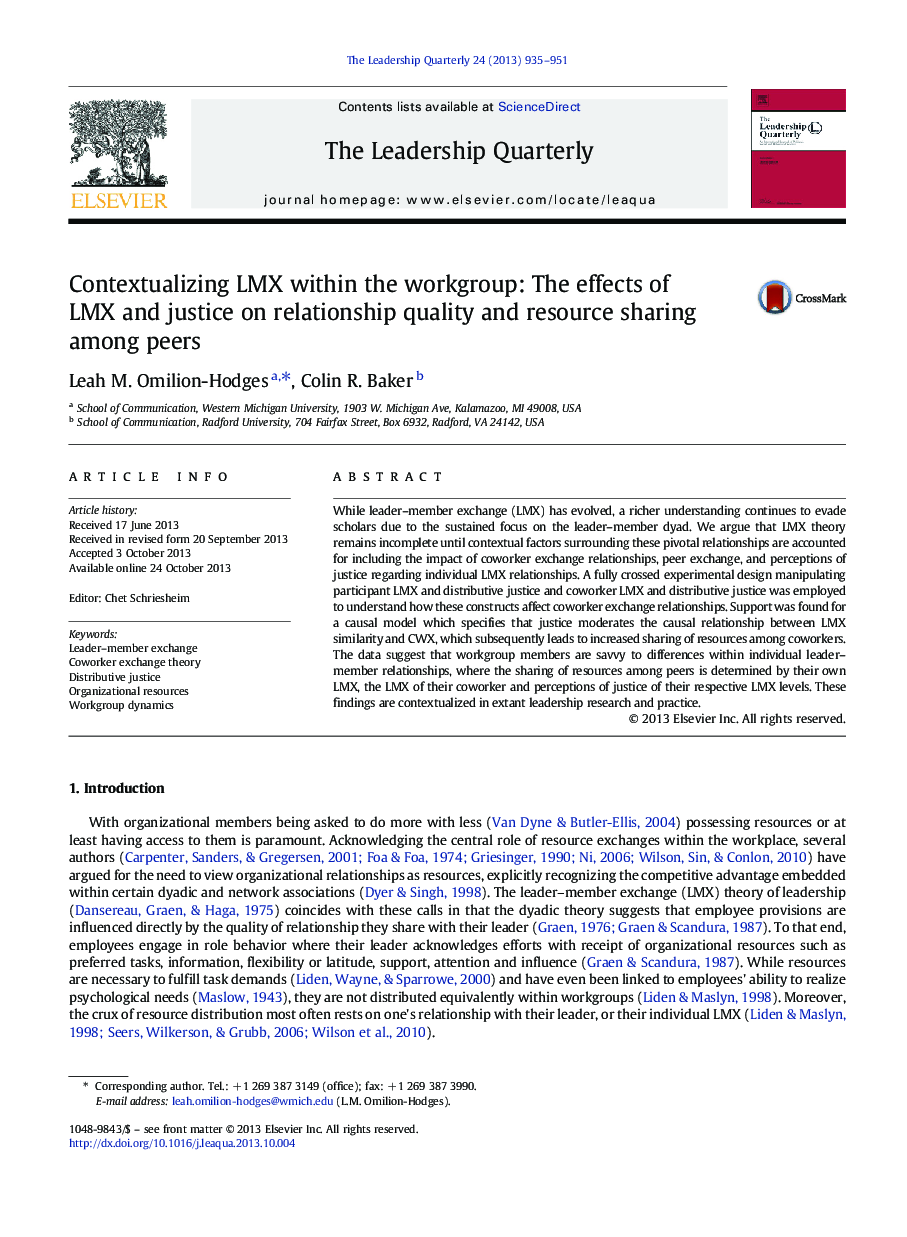| Article ID | Journal | Published Year | Pages | File Type |
|---|---|---|---|---|
| 887922 | The Leadership Quarterly | 2013 | 17 Pages |
While leader–member exchange (LMX) has evolved, a richer understanding continues to evade scholars due to the sustained focus on the leader–member dyad. We argue that LMX theory remains incomplete until contextual factors surrounding these pivotal relationships are accounted for including the impact of coworker exchange relationships, peer exchange, and perceptions of justice regarding individual LMX relationships. A fully crossed experimental design manipulating participant LMX and distributive justice and coworker LMX and distributive justice was employed to understand how these constructs affect coworker exchange relationships. Support was found for a causal model which specifies that justice moderates the causal relationship between LMX similarity and CWX, which subsequently leads to increased sharing of resources among coworkers. The data suggest that workgroup members are savvy to differences within individual leader–member relationships, where the sharing of resources among peers is determined by their own LMX, the LMX of their coworker and perceptions of justice of their respective LMX levels. These findings are contextualized in extant leadership research and practice.
